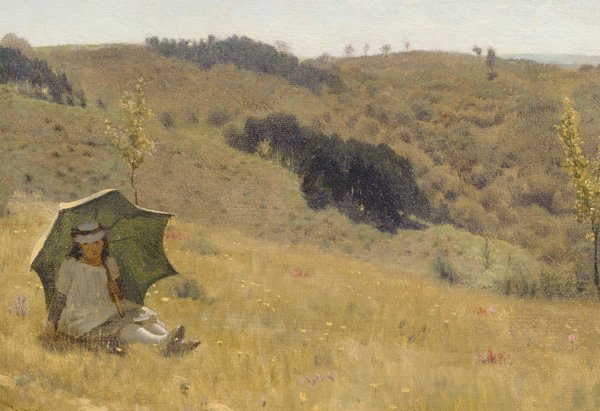
11 Things We Know About Joy
2. It's the very fact that we can't snap our fingers and summon up joy or even predict when it might suddenly surge up out of nowhere, unbidden, full blown and unalloyed that makes hopelessness such an irrational mistake. Franz Kafka wrote in his diaries: "Just when everything seems over with, new forces come marching up, and precisely that means you are alive."
3. It can be what causes you to suddenly look up (in the midst of scarfing down onion rings in a banquette at the diner) and say to someone (often mistakenly), "I love you." The mistake is not in the joy; it's in identifying the guy seated across from you as the source of your joy. Relationships can begin and end with this error—the misattribution of your joy (or lack thereof) to another person.
4. Although it seems so quintessentially a phenomenon of presentness, joy can just as immediately seem retrospective, like something from childhood you'd thought was irretrievably lost. This is why joy so often feels like a return, like a reclaiming or redemption.
5. In times of joy, you become the most authentic version of yourself—what Wallace Stevens (a great poet of joy) referred to as "the passion for yes." There are venerable traditions of wisdom that hold suffering as the crucible of insight, but I've always felt that it's in great joy that we grasp truth.
6. Fear is its opposite, not sadness.
7. It doesn't always announce itself with great fanfare. It can hum, quietly, underneath.
8. It can feel like a surrender and a liberation, both at the same time. These sorts of contradictions are always reconciled in joy.
9. That expression "drunk with joy" is something of a misnomer. Joy is a bracingly sobering experience. It's not a forgetting of troubles. It isn't naïve. It isn't blinkered. It isn't a state of oblivion. When one's joyful, one's eyes are open. There is, in joy, an utter fidelity to the world.
10. The melancholy aspect of joy is always right there. There's a reason we so frequently talk about "tears of joy." That we can maintain a capacity for joy while we remain so acutely cognizant of mortality is what makes human life so exquisitely poignant, so sweet and ridiculous and tragic.
11. Joy expresses itself most beautifully in shared laughter. When people laugh together, they're actually commiserating with each other, acknowledging just how difficult and baffling life can be. Joyous laughter is never embittered or sneering or derisive. To the contrary, it's a ritual of solidarity, a reaffirmation that we're all in this together. Someone said to me the other day, "God is getting older. He's starting to forget things." It was such a casually ironic joke about the uncertain world we inhabit, so warmhearted in its indulgence about the divinity upon whose infallibility man has so steadfastly depended...in that offhand, unexpected moment of laughter with someone I didn't know, I felt an unusually vivid sense of kindredness.
And couldn't this be what joy—stripped of its bells and whistles—essentially is: to simply feel as if we belong, whatever our plight, here and with each other?
Mark Leyner is the author of The Sugar Frosted Nutsack.
Be Joyful!











